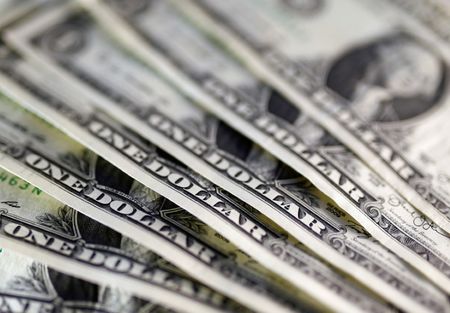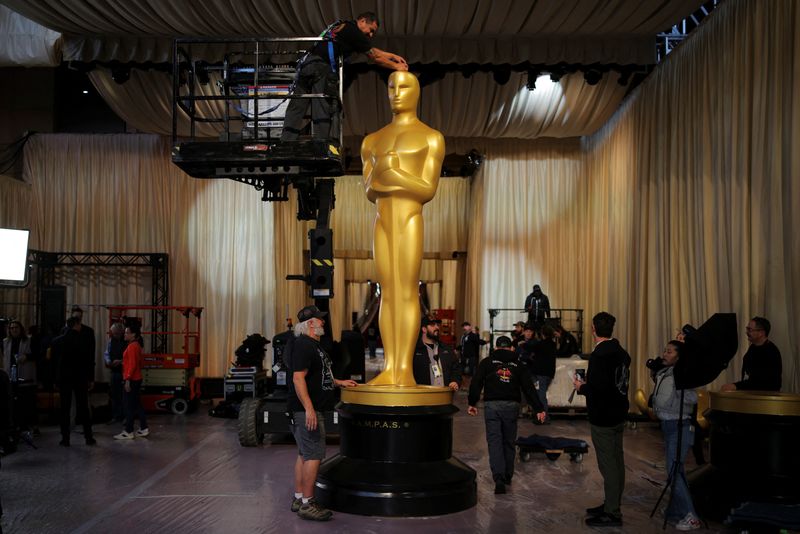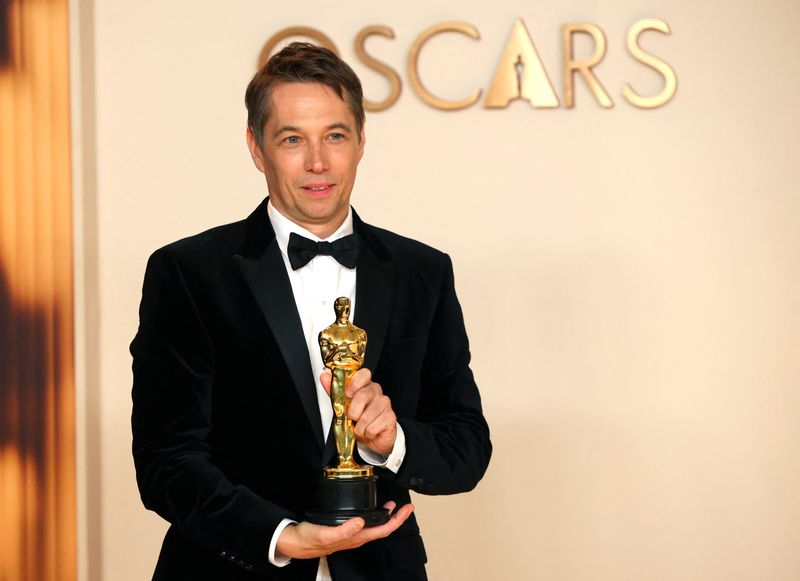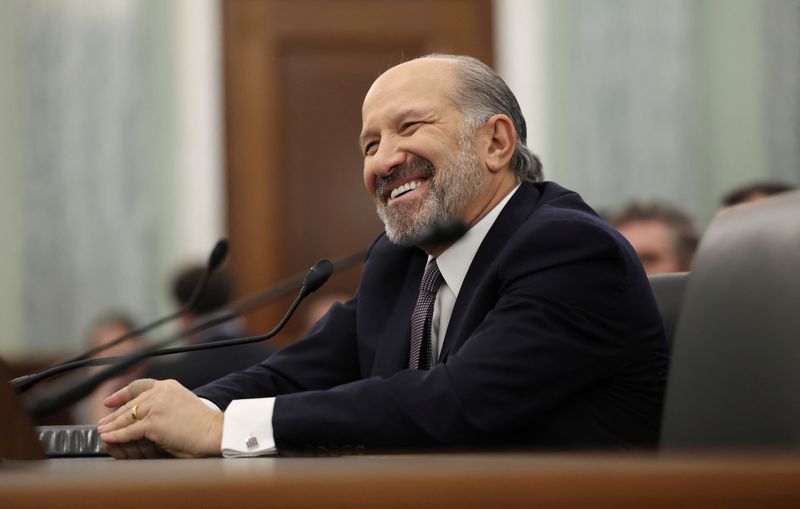Could Russia’s invasion of Ukraine have been prevented? NATO’s outgoing chief thinks so.
Jens Stoltenberg reflects on the past and future of the military alliance.
BRUSSELS — On his final day as NATO’s secretary general, after 10 years in the job, Jens Stoltenberg didn’t want to look back. But in an interview with POLITICO Magazine, he couldn’t help but share one great regret: that the West didn’t more forcefully intervene on Ukraine’s behalf after Russia first started biting into its territory in 2014.
“If we had delivered a fraction of the weapons we have delivered after 2022, we may have actually prevented the war,” he said.
Otherwise, Stoltenberg shared no grievances and avoided criticizing any members of the alliance, even as he is a firm believer that much more can be done to help Ukraine.
It’s the sort of approach that made the 65-year-old Norwegian politician well-liked by (most) allies. He seldom steps out of line, which is key for a military alliance that is run on the basis of consensus, not on open fights among opponents.
He’s also done work to shore up his legacy as the second-longest-serving head in NATO’s history, taking a more assertive role in his last few months on a plan to deliver more aid to Ukraine next year. He also made sure the U.S. would shift part of the weapon transfer mechanism for Ukraine to NATO control, ensuring a degree of stability so Donald Trump can’t cancel everything by a tweet if he returns to the White House.
But even on Trump, who has been fiercely skeptical of NATO, Stoltenberg declined to speculate. And in the interview, his final one before he stepped down last week, he urged European allies not to create “self-fulfilling prophecies.”
This conversation has been edited for length and clarity.
Today’s your last day. How does it feel?
It’s a strange feeling. It’s time to leave, and NATO will be in safe and good hands with the incoming secretary general, Mark Rutte. But at the same time, I will miss NATO. It has been a privilege to serve. I have people here that I will miss, but that’s part of life.
And to be honest, I have stepped down before, and I had the same kind of feeling of stepping into emptiness. Because I stepped down as [Norwegian] minister of finance in 1997 and I felt that was the end of my professional career, and then I had the same feeling when I stepped down as prime minister. So I’ve actually done it before, and every time it’s a bit difficult, but every time, something new and exciting will happen in the future. [In fact, he was named the new chair of the Munich Security Conference on Tuesday.]
Before the full-fledged war in Ukraine broke out, Russian President Vladimir Putin sent you a letter in 2021, demanding no new NATO members be accepted and no NATO troops be based in the eastern flank. Was it a surprise to you?
Well, it was not a big surprise. The demands in the letter were in line with what Russia formulated earlier in different meetings. Of course, it was not possible for NATO to say that we closed the NATO store — not only for Ukraine, but also for Finland and Sweden. They want us to stop any further enlargement. To guarantee no NATO military presence in the eastern part of the alliance would be to introduce some kind of first- and second-class NATO membership.
Despite that, we were actually willing to sit down and we had a meeting in the NATO-Russia Council in January 2022, because we thought it was important to do whatever we could to have a political, diplomatic process to try to prevent the war.
And when I came [into office] in 2014, one of my main tasks was to try to strengthen the political dialogue with Russia. But of course, what we saw over the years, and especially in the fall of 2021 and beginning of 2022, was that the room for political dialogue was extremely small.
Europe and the U.S. split repeatedly during Russia’s war on Ukraine — over tanks, then missiles, then F16s, now the long-range attacks. Which discussion was the hardest one for you?
The most difficult discussion was, in one way, before the invasion. The war didn’t start in 2022, it started in 2014, both with the illegal annexation of Crimea, but also when Russia went into eastern Donbas in the summer of 2014. And NATO allies provided some support to Ukraine. I remember one of my first visits was actually to Yavoriv, a NATO training facility for Ukraine back in 2015. I worked hard to try to convince NATO allies to do more, to provide more military support, more training. Some allies did, but it was relatively limited, and that was very difficult for many years because the policy in NATO was that NATO should not provide lethal support to Ukraine.
It’s hindsight and hypothetical, so no one can say with certainty, but I continue to believe that if we had armed Ukraine more after 2014, we might have prevented Russia from invading — at least we would have increased the threshold for a full-scale invasion. We had the discussion about the Javelin anti-tank weapons that some allies thought was provocative. And again, it is not so very meaningful to discuss what we could have done. But, since you asked me, I think actually we could have done more before the full-scale invasion. If we had delivered a fraction of the weapons we have delivered after 2022, we may have actually prevented the war, instead of supporting Ukraine’s effort to defend itself in a war.
“I continue to believe that if we had armed Ukraine more after 2014, we might have prevented Russia from invading.”
Jens Stoltenberg, former NATO secretary general
So the red lines back then are similar to the red lines we have right now?
Well, there are some parallels. On the other hand, I think we need to recognize that NATO allies have provided unprecedented support, much more support than anyone believed back in 2022 or before the invasion: HIMARS, cruise missiles, advanced battle tanks, Leopard and Abrams and F16s — an enormous amount of ammunition and artillery. But of course, there is an ongoing discussion now about restrictions on the use of NATO-delivered weapons, or weapons from NATO allies, on the territory of Russia.
My position is that this is a war of aggression by Russia against Ukraine. That’s a blatant violation of international law. According to international law, Ukraine has the right to self-defense, and the right to self-defense includes the right to strike legitimate military targets on the territory of the aggressor, Russia. I welcome that some allies have no restrictions, except it has to be within the limits of international law. And others have actually loosened their restrictions on the use of weapons.
U.S. presidential candidate Donald Trump recently mocked Ukraine President Volodymyr Zelenskyy as the “greatest salesman in history.” You have dealt with Trump before — what do you think is his strategy here?
I will be very careful speculating about that.
What I will say is that whoever is elected as the president of the United States in November, it’s important for European allies to engage with the United States to ensure that they continue to support Ukraine, because it is in the security interest of all of us that Ukraine prevails as a sovereign, independent nation in Europe. I remember we discussed the Javelins, the anti-tank weapons, and it was actually then-President Trump who made the decision to provide Javelins [to Ukraine].
So what Trump says is different from what he does?
Again, I will not speculate. Let’s just see. But the most important thing is that whoever is elected, it’s important that European allies don’t create self-fulfilling prophecies, but actually we do whatever we can to ensure that the U.S. continues to support Ukraine.
Trump says he’ll get Ukraine to negotiate within 24 hours if he wins the election. That seems to undercut efforts to ensure Ukraine is in the best position strategically and militarily before entering into negotiation.
First of all, we all want this war to end, but we also know that the quickest way of ending a war is by losing a war. But that will not bring peace. It will bring occupation of Ukraine.
Therefore the challenge is to end the war in a way where Ukraine continues as a sovereign, independent nation, and the only way to reach that is by making sure that Russia understands that they cannot achieve their goals on the battlefield.
I don’t believe we can change Putin’s mind, but I believe we can change his calculus, that he realizes that the cost of continuing the war is too high. This is my message to the United States, and this is also what we, all of us, should convey very clearly to the United States after the election.
Many allies are now reaching the NATO target of spending 2 percent of their GDP on defense. Is that good enough?
First, we need to recognize the enormous progress allies have made. In 2014, three allies spent 2 percent of GDP or more on defense. Now, 23 allies reached that target, and some are significantly above 2 percent, such as Poland, the Baltic countries, the U.K., the United States. So that’s the good news.
The bad news is that 2 percent is not enough. This is also reflected in what allies have agreed at the last summit, that 2 percent is a minimum. And we also agreed on defense plans, where we have specific capabilities, forces, readiness that allies should deliver to ensure that we can actually execute these plans.
And if we look at these capability targets, as we call them in NATO, it’s obvious that for most allies, it will be impossible to deliver those forces without spending significantly more. I am not willing to put a specific number on that, because it was very much on how they organize their own defense. For some allies, they have conscription, others have not. The cost level varies. So there’s no way we can have a specific number. But when we see the ambition we have agreed on for forces’ readiness based on our defense plans, it’s obvious that it has to be significantly more than 2 percent.
Germany and Baltic countries say a Russian attack could happen in just five years. What’s your assessment?
First, we don’t see any imminent military threat against any NATO ally. Second, we see that for the Russian military capacity, almost all of the land forces are now devoted to the war in Ukraine, and it will take time before they’re able to build up that. On the other hand, they have turned their economy into a war economy, so they are producing a lot of weapons and ammunition. When the war ends in Ukraine, this capacity — production capacity — will still be there.
I’m not willing to go into a discussion about exactly how many years before Russia has the full strength again. What I can say is that we should not talk as if it is inevitable that Russia will attack. NATO’s there to prevent that from happening. The purpose of NATO is not to wage a war, but it is to prevent the war. And we have been able to do that throughout the Cold War, for 75 years, because we have, every day, 24/7, had credible deterrence.
So I’m afraid of some of the rhetoric that indicates that within a certain amount of years, Russia will attack. No, they will not attack, as long as we are strong and united. And that’s the purpose of NATO.
What’s your biggest unfinished business as you leave Brussels?
I don’t have a list of that kind of thing, but of course, the war in Ukraine continues, and it’s heartbreaking to see all the suffering, all the people who are killed and all the damage that the Russians caused.
At the same time, I’m confident that with the decisions we took at the [July] NATO summit — we have set up the structures to provide more predictable, long-term support to Ukraine, with the financial commitment for Ukraine from NATO allies — NATO will continue to be Ukraine’s most important supporter. Ninety-nine percent of military support to Ukraine comes from NATO allies. So, of course, it would have been great to have seen an end to the war. But at the same time, I’m absolutely certain that we have the structure in place to continue supporting it.
So Mark Rutte will be a better Sec Gen than yourself?
I’m absolutely certain that Mark Rutte has all the qualifications to be a perfect and great secretary general, and I think it’s a strength of democratic nations and democratic institutions such as NATO that we change at the top. It’s part of what makes NATO strong, that we change the leadership.
What's Your Reaction?



























:quality(85):upscale()/2024/09/09/785/n/1922283/901e710666df358b373de2.40207443_.jpg?#)
:quality(85):upscale()/2024/07/23/904/n/1922283/dc92642c66a0159ee98db4.72095370_.jpg?#)
:quality(85):upscale()/2024/07/10/842/n/1922283/8fb902af668edd399936b2.17277875_.jpg?#)
:quality(85):upscale()/2024/06/07/909/n/1922283/82a389f8666372643f2065.06111128_.jpg?#)
:quality(85):upscale()/2024/06/07/726/n/1922283/10bee64e666334778cf548.63095318_.jpg?#)
:quality(85):upscale()/2025/02/27/808/n/1922398/26784cf967c0adcd4c0950.54527747_.jpg)
:quality(85):upscale()/2025/02/03/788/n/1922283/010b439467a1031f886f32.95387981_.jpg)
:quality(85):upscale()/2025/01/08/844/n/1922398/cde2aeac677eceef03f2d1.00424146_.jpg)
:quality(85):upscale()/2024/11/27/891/n/1922398/123acea767477facdac4d4.08554212_.jpg)







:quality(85):upscale()/2024/02/21/214/n/1922283/8118faa965d6c8fb81c667.06493919_.jpg?#)


